From the plow to the atomic bomb
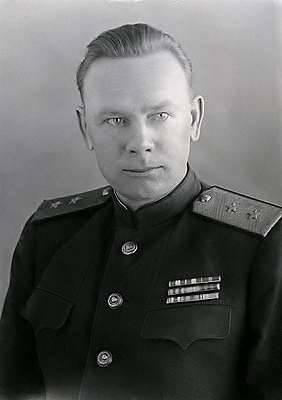
But let me ask you: if Pavel Fitin is Alex from the movie “Seventeen Moments of Spring”, then who is Eustace? The only Soviet agent in the General Directorate of Imperial Security (RSHA) was SS Hauptsturmführer Willy Lehman (Agent A-201, aka Breitenbach). However, at the beginning of the war, the connection with him was lost. After the war, it turned out that Willy Lehman was arrested by the Gestapo in December 1942 and executed.
Luftwaffe chief lieutenant Heinz Harro Schulze-Boysen (agent's pseudonym, Starshina), about whom the foreign intelligence chief of the SD, SS brigadefuhrer SS Walter Schellenberg, wrote in his memoirs that “this fanatic was the driving force of the entire espionage organization in Germany”, arrested 31 X.X.X. 1942 was hanged in December of the same year in the Plötzensee Prison in Berlin, and his wife Libertas Schulze-Boysen was guillotined. The same fate befell Arvid Harnack (the Corsican) and his wife Mildred.
So in this regard, Schellenberg just came out the winner. But who he really lost is the Smersh military counterintelligence. In March, 1942 was established in the structure of the VI Administration of the RSHA (SD-Abroad) to create the separatist national movements in the Soviet rear and kill Stalin the Zeppelin reconnaissance and sabotage body (Unternehmen Zeppelin) was formed.
Although already in 1943, in order to penetrate the agent networks of the SD and the enemy's disinformation, the 3 department of the SMUR “Smersh” of the USSR NPO conducted operational radio games with Zeppelin codenamed “Riddle”, “Fog” and others. In these games, the future chief of the Second Central Board (Counterintelligence) of the KGB of the USSR, Colonel-General, and in 1943 year, Captain Grigory Grigorenko, derived by Julian Semyonov in the novel "TASS authorized to declare ..." in the image of General Fedorov, Chief of General Konstantinov, especially distinguished themselves.
Another myth related to the name of Pavel Mikhailovich Fitin, a man, of course, outstanding, is the statement that he "reanimated" foreign intelligence. Numerous authors, referring to the anonymous SVR employees, do not cease telling horror stories that the scouts were shot in those years with “packs” and that even the term “shooting intelligence” appeared. In his memoirs, which remained closed for a long time, Pavel Mikhailovich also notes that “during 1938 – 1939, almost all of the residents of INO behind the cordon were recalled to Moscow, and many of them were repressed”.
And there were reasons for this. In the 1937 year, high-ranking officers of the French and German residencies of the NKVD of the USSR, Ignatius Reuss (real name Natan Poretsky) and Walter Krivitsky (Samuel Ginsberg), flee to the West. Living with 1938 in the USA, Krivitsky gives out more 100 Soviet agents throughout Europe and publishes the book I Was an Agent of Stalin. 10 February 1941 was found dead at the Bellevue Hotel in Washington. Reiss's corpse was discovered 4 September 1937 of the year on the road from Lausanne to Pulli ...
In July, 1938, it became aware of Alexander Orlov (Feldbina), a resident of the NKVD in Spain, fleeing to the US, and on June 14, an event occurs that nearly led to the failure of the entire Soviet intelligence system. On that day in Manchuria, the Plenipotentiary of the NKVD for the Far East, Commissioner of the State Security of 1938 rank, Heinrich Lyushkov, leaves for the Japanese. Therefore, the appointed 3 of September 29, the head of the Main Directorate of State Security (GUGB) of the NKVD of the USSR, Lavrenti Beria, starts checking all hardcore residencies in order to identify the Trotskyists involved in underground anti-Stalinist activities.
It was with these questions that the security officer, and then the chief of the 9 branch of the 5 division of the Main Directorate of the Main Directorate of the NKVD of the USSR Pavel Fitin, was engaged. In his memoirs he writes:
“In October of 1938, I came to work at the Foreign Department as operational representative of the department for the development of the Trotskyists and the“ right ”behind the cordon, but soon I was appointed head of this department. In January, 1939, I became the deputy head of the 5 department, and in May, 1939, headed the 5 department of the NKVD. He was in charge of foreign intelligence until the middle of 1946. ”
What was the reason for such a dizzying take-off of a native of a distant Siberian village, a graduate of the Timiryazev Agricultural Academy, who was engaged in agricultural mechanization in Selkhozgiz until March 1938? Indeed, in the headquarters of the intelligence service, experienced and just like him, having excellent external data, served: Pavel Sudoplatov, Vasily Zarubin, Alexander Korotkov and many others.
But all of them have already visited the cordon, worked in the residency, many of which turned out to be failed ... And Beria chose Fitine.
“Pavel Mikhailovich Fitin, a slim, calm, imposing blond, stood at the head of intelligence. He differed in laconicism and restraint, ”writes Alexander Feklisov, Hero of Russia, in those years an employee of the New York residency. “In Fitin’s face, Soviet foreign intelligence found the necessary, capable, decent, and fully committed Chekist to their duty,” said Hero of Russia, intelligence officer, employee of the Yasha Group, Yury Kolesnikov, in her book “Among the Gods”. - Commissar Beria treated him with a certain degree of sympathy and understanding. I was sure of him. ”
And the most important thing is not even the fact that Pavel Mikhailovich never spoke ill of anyone, did not demean the dignity of deserving employees. He knew how to foresee circumstances and firmly adhere to a busy position.
“Knowing about Stalin’s cautious attitude towards intelligence information coming from abroad,” recalls Kolesnikov, “Fitin nevertheless continued without delay to report on it to the country's leadership. Neither Fitin, nor Merkulov, nor even Beria could predict the Secretary General’s reaction to a message from Berlin ... Life was at stake here. ”
To withstand such an audience, and with advantage for the cause, is an extraordinary thing. Here we need not just human, but superhuman abilities, which distinguished many countrymen of Pavel Mikhailovich - natives of the Tyumen region. Take at least such Tyumen citizens like Grigory Rasputin from the village of Pokrovskoye. Or Nikolai Kuznetsov from the village of Zyryanka, a recent rural boy under the guise of a German officer, is seeking an audience with the Gauleiter of East Prussia and the Reich Commissar of Ukraine Erich Koch and says goodbye to him as a fellow countryman, having received support and valuable information. There is something mystical about this, but it is only from these positions that one can understand the essence of the power structures of that time.
“17 June 1941 of the year we, together with the People's Commissar (State Security Commissar of 3 rank Vsevolod Merkulov. - AV) arrived at the Kremlin at one o'clock in the afternoon,” writes Pavel Mikhailovich. - After the assistant's report about our parish, we were invited to the office. Stalin greeted him with a nod of his head, but did not offer to sit down, and he did not sit down during the whole conversation. He paced around the office, stopping to ask a question or focus on the points of a report or answer to his question that interested him. Approaching the large table, which was to the left of the entrance and on which numerous messages and reports lay in piles, and on one of them was our document on top, Stalin, without raising his head, said:
- Read your report. It turns out that Germany is going to attack the Soviet Union?
We are silent. After all, just three days ago, June 14, the newspapers published a TASS statement stating that Germany was also unswervingly complying with the conditions of the Soviet-German Non-Aggression Pact, like the Soviet Union. Stalin continued pacing the office, occasionally puffing on his pipe. Finally, stopping in front of us, he asked:
- What kind of person who reported this information?
We were ready to answer this question, and I gave a detailed description of our source (Harro Schulze-Boysen, Petty Officer. - A.V.). In particular, he said that he was German, ideologically close to us, together with other patriots, he was ready in every way to contribute to the fight against fascism. Works in the Ministry of Air fleet and very knowledgeable.
After the end of my report there was a long pause again. Stalin, walking up to his desk and turning to us, said:
- Misinformation! You can be free. "
As Nina Anatolyevna, Pavel Mikhailovich’s spouse, told me, Stalin added that if the information is not confirmed, you will have to pay with your head ...
“A few days have passed,” recalls Pavel Mikhailovich. - At dawn, I left the Commissariat. Behind tense week. It was Sunday, a day of rest. And thoughts, thoughts, like a pendulum of a clock: “Is disinformation? And if not, then how? ”With these thoughts, I came home and lay down, but I could not sleep, the phone rang. It was five in the morning. The receiver’s voice on the People's Commissariat: “Comrade general, you are urgently called by the people's commissar, the car has been sent.” I immediately got dressed and went out, being firmly convinced that what exactly Stalin had been talking about a few days ago happened. ”
According to the relatives of Pavel Mikhailovich, at home he liked to joke: "If there were no happiness, yes, misfortune helped." The beginning of the war dot the i's.
By the way, Pavel Mikhailovich never said that Stalin imposed some kind of resolution on his report on 17 June, all the more obscene, rumors about which periodically appear in the media. Moreover, as Pavel Anatolyevich Sudoplatov writes, “on the same day, when Fitin returned from the Kremlin, Beria called me to himself and gave the order to organize a Special Group from among the intelligence officers in his direct subordination. She was supposed to carry out reconnaissance and sabotage actions in the event of war. ” Consequently, Stalin rather believed Fitin, giving all the necessary orders regarding bringing the troops of the NKVD and the Red Army into full combat readiness. Another thing is that the first have executed the directive in full, and the second only partially.
18 January 1942 was decided by the Central Committee of the CPSU (b) on the basis of the Special Group to establish the 4-e (reconnaissance-sabotage) Directorate of the NKVD, which was separated from the 1-NKVD Directorate. Headed the 4-e Management Senior Senior State Security Pavel Anatolyevich Sudoplatov. The remaining foreign intelligence staff, led by Senior Major of State Security Pavel Mikhailovich Fitin, focused on the coverage of US and British policies and scientific and technical intelligence.
And again the memories of Pavel Mikhailovich:
“The great merit of foreign intelligence during this period, especially the residency of the First Directorate in the USA, Canada, England, was the acquisition of scientific and technical information in the field of atomic energy, which greatly helped speed up the resolution of the issue of creating an atomic bomb in the Soviet Union. I often met with Igor Vasilyevich Kurchatov, who expressed great appreciation for the materials received from our intelligence on atomic energy issues. ”
US nuclear research weapons were conducted in the S-1 Uranium Committee since 1939. 17 September 1943 of the year began the implementation of the program under the code name "Manhattan Project", in which scientists from the USA, Great Britain, Germany and Canada took part. The main objects of the Manhattan Project were the Hanford and Oak Ridge Plants, as well as the laboratory in Los Alamos (New Mexico). It was there that the design of the atomic bomb and the technological process of its manufacture were developed. The FBI's counterintelligence took unprecedented security measures, and not a single intelligence service of the world, except the Soviet one, was able to overcome them.
At the initiative of Pavel Mikhailovich, the Deputy Resident in New York, Major of State Security Leonid Kvasnikov was appointed as intelligence officer for obtaining information on atomic topics. In addition to Fitin and Kvasnikov, only a few people were allowed to carry out this operation, which received the code name "Enormous": Gaik Hovakimian, head of the 3 section of the 1 Department of the NKVD of the USSR, and E.M. Potapov, and in New York - the resident Vasily Zarubin, his spouse Elizabeth Zarubin, Semyon Semenov (Taubman), Alexander Feklisov and Anatoly Yatskov. In addition to them, in the London residency the resident Anatoly Gorsky and his deputy Vladimir Barkovsky were admitted to the Enormous project. Many of them later became Heroes of Russia.
Of the foreign nationals, 14 used especially valuable agents to mine atomic secrets, including the German theoretical physicist Klaus Fuchs, his binder Harry Gold, who was also associated with Morton Sobell from General Electric and David Greenglass, a mechanic from Los Alamos, and spouses Rosenberg, subsequently electrocuted. Contacts with the residency were carried out by illegal agents Leontin and Morris Cohen, who later became Heroes of Russia.
20 August 1945 was established by the Special Committee, chaired by Lavrentiy Pavlovich Beria. The committee was charged with “directing all the work on the use of uranium's atomic energy”. Beria, on the one hand, organized and supervised the receipt of all necessary intelligence information, on the other hand, he carried out general management of the entire project.
29 December 1945 of the year Beria was relieved of his post as Commissar of Internal Affairs of the USSR, and six months later, 15 of June 1946 of the year, Lieutenant-General Fitin, at the age of 38, left the post of foreign intelligence chief. In the article by Eva Merkacheva in Moskovsky Komsomolets, we read:
“There are many versions. According to one of them, all this was Beria's revenge. He was afraid that Fitin would begin to tell the whole world how he warned of the inevitability of war and how no one listened to him. Beria couldn’t deal with Fitin at that moment, except by simply removing him from management positions and “sending” away from Moscow ”(“ MK ”, December 19, 2014 of the year).
But how could Beria “remove” Fitin if he himself was no longer working in the state security system by this time?
Quite the contrary, much indicates that Beria supported Fitin even after the latter’s resignation. 29 August 1949 at the Semipalatinsk test site in Kazakhstan successfully passed the atomic bomb test. At that time, Pavel Mikhailovich worked in the UMGB in the Sverdlovsk region, and in 1951 – 1953, when the hydrogen bomb was being developed, he was the Minister of State Security of the Kazakh SSR.
They write:
“In the post-war years, for almost five years I had to deal with issues related to the special production and launching of uranium plants, and in this regard ... repeatedly meet with Igor Vasilyevich, a talented scientist and a wonderful person. In conversations, he again emphasized what an invaluable service in solving the atomic problem in the USSR was played by materials obtained by Soviet intelligence. "
And only after 26 June 1953 of the year, Lavrenty Pavlovich Beria was killed during the coup d'état committed by Khrushchev, Lieutenant General Pavel Mikhailovich Fitin 29 on November 1953 of the year was finally dismissed from the bodies “due to non-conformity” - without pension, because he did not have required length of service ...
In the last years of his life, Pavel Mikhailovich worked as a director of a photo-industrial complex of the Union of Soviet Societies for Friendship and Cultural Relations with Foreign Countries. 24 December 1971, he died in Moscow on an operating table. He turned 63 of the year. According to the relatives of Pavel Mikhailovich, there was no evidence for an operation about perforated ulcer ...
However, the following is noteworthy: shortly before his death, in May 1971, on the initiative of the Chairman of the KGB of the USSR Yuri Andropov, Yakov Serebryansky, the former leader of the active intelligence group (“Yasha’s group”) and an employee of the special group under the People's Commissar of Internal Affairs Beria, were rehabilitated. Apparently, someone feared that Pavel Mikhailovich, who had connections and personal charisma, could contribute to the further rehabilitation of the victims of the Khrushchev repressions.
In October, 2015 was initiated by Major General Vladimir Usmanov, who was an adviser to the governor of the Kurgan Region, in the village of Pavel Mikhailovich in the village of Ozhogino in the Kurgan Region, where a meeting of residents was held, where they decided to make an application for Pavel Mikhailovich Fitin to be awarded the title Hero of Russia (posthumously) . After all, the peaceful sky over our country is preserved thanks to the nuclear shield, to whose creation Pavel Mikhailovich made a considerable contribution.
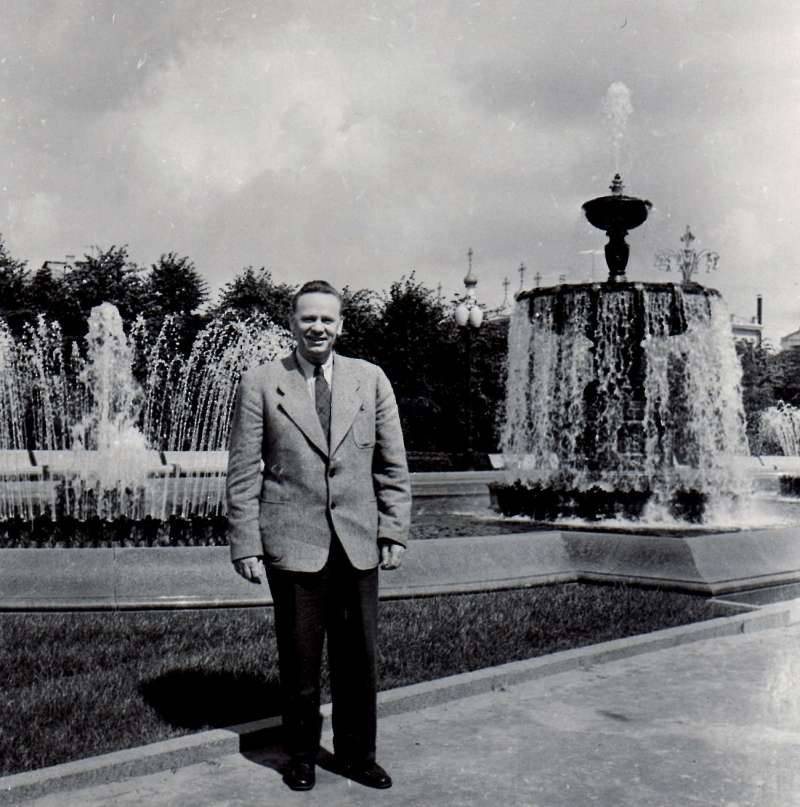
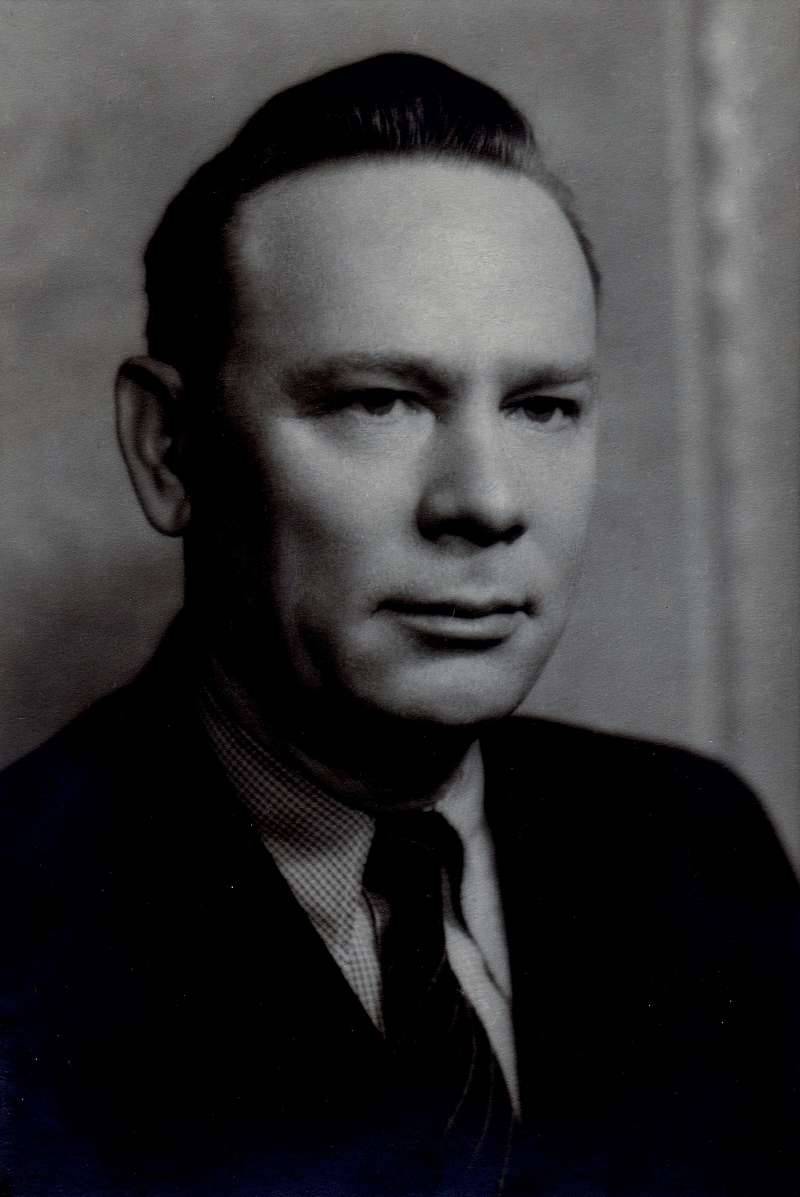
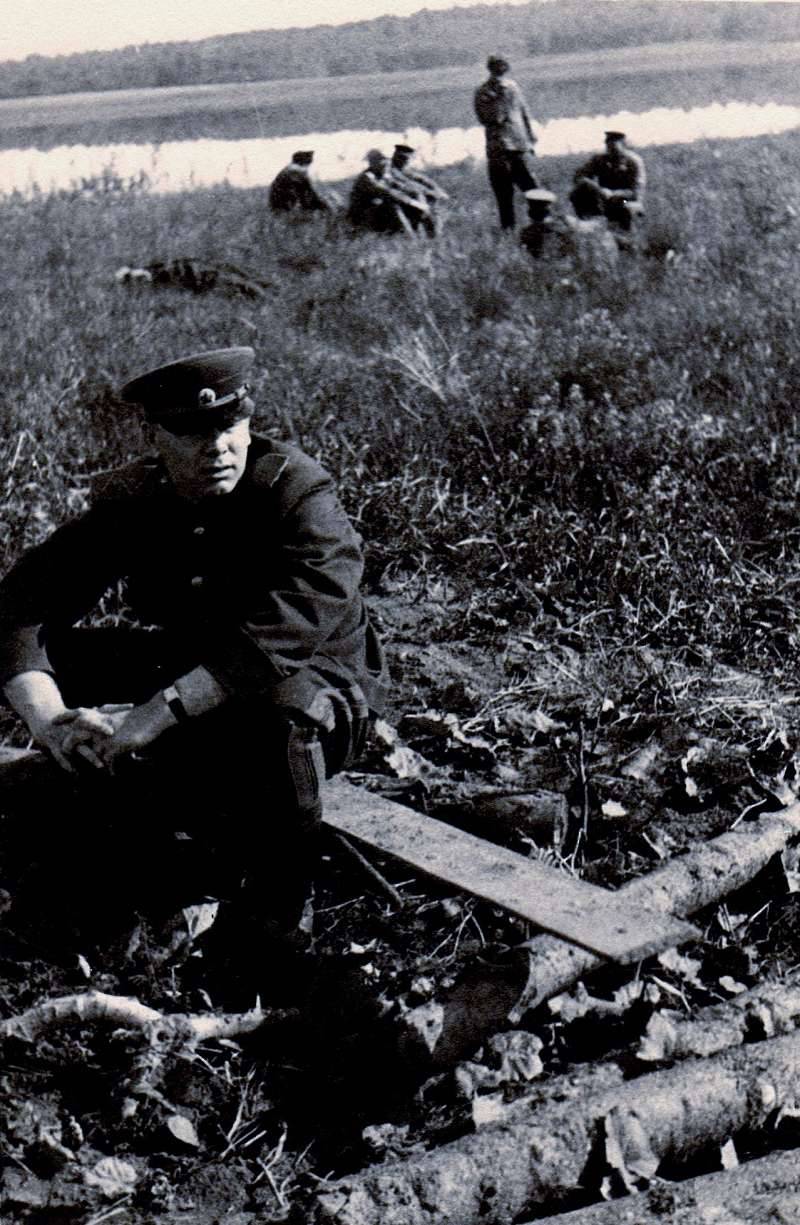
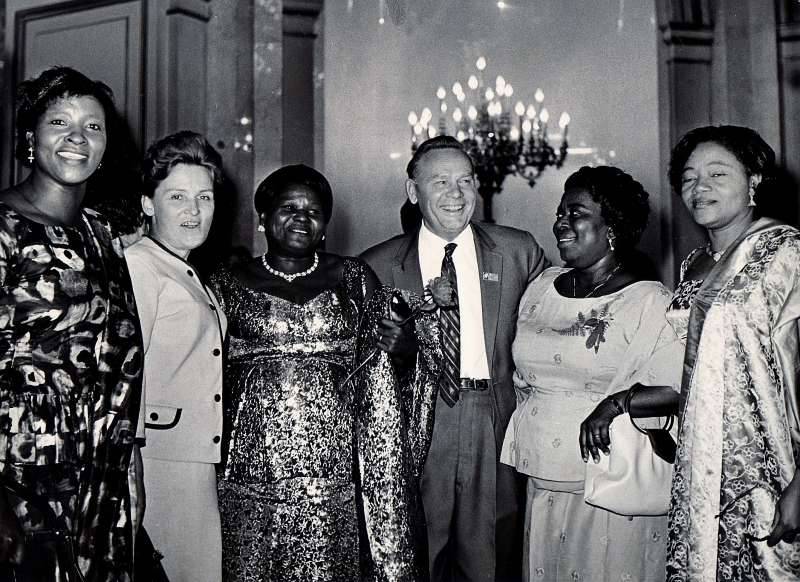
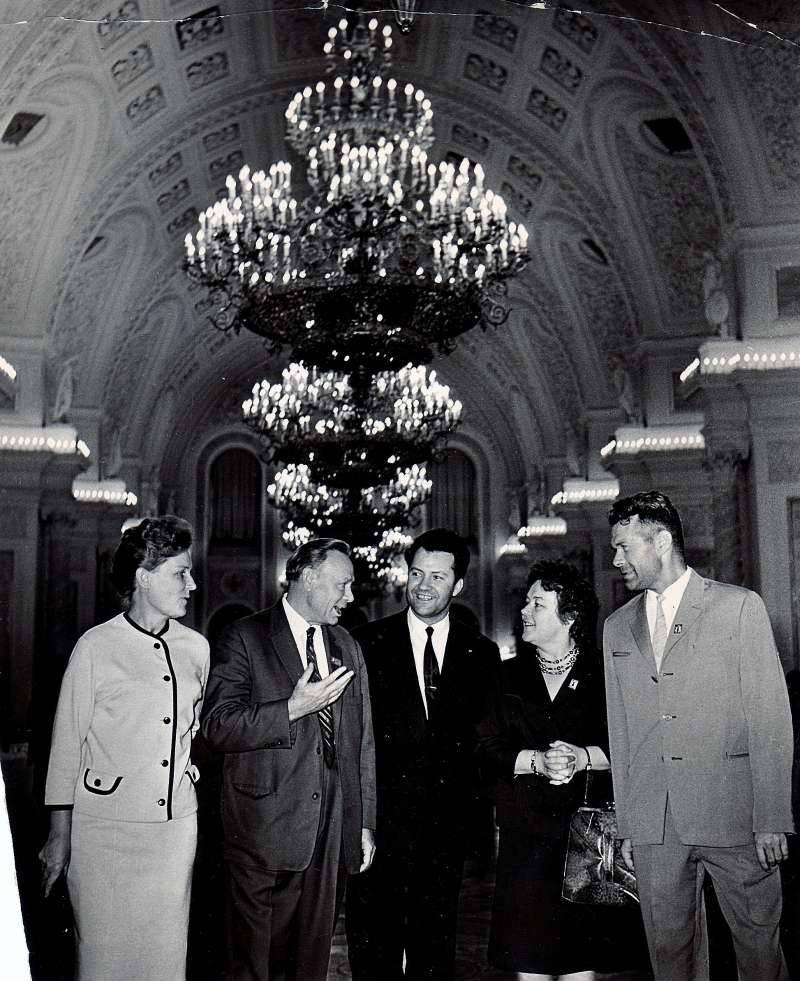
Information